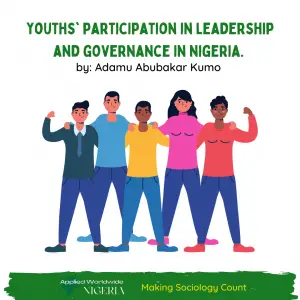Nigeria is a country renowned for its extraordinary cultural diversity, home to over 250 ethnic groups. Each with its distinct traditions, languages, and customs. While the Yoruba, Hausa, and Igbo tribes are often highlighted, many lesser-known tribes play a crucial role in enriching Nigeria’s cultural landscape. Understanding these tribes is essential for appreciating the full scope of Nigeria’s heritage. This article delves into ten lesser-known tribes in Nigeria. Shedding light on their locations, cultural practices, and unique characteristics.
Kamuku: Guardians of Tradition
The Kamuku people are located in the northwestern part of Nigeria, primarily in Niger and Kaduna States. With a population in the tens of thousands. The Kamuku has preserved a distinct cultural identity despite the encroaching influences of modernization.
Cultural Practices and Traditions: The Kamuku are predominantly agriculturalists. Farming and animal husbandry form the backbone of their economy. They are also known for their intricate beadwork and pottery, which are central to their cultural expressions. Traditional dances, performed during festivals and communal gatherings, showcase their rhythmic movements and elaborate costumes.
Unique Characteristics and Skills: A notable feature of Kamuku society is their deep respect for elders and a strong emphasis on communal living, reflected in their social structures and practices. Their ability to maintain cultural continuity under external pressures highlights their resilience and commitment to tradition.

Etche: A Unique Igbo Subgroup
The Etche people reside in the southeastern part of Nigeria, particularly in Rivers State. While they are a subgroup of the larger Igbo ethnic group, the Etche have developed distinct cultural practices that differentiate them from other Igbo communities.
Cultural Practices and Traditions: The Etche are primarily farmers, cultivating crops like cassava, yams, and palm oil. Their traditional attire is adorned with beads and intricate patterns, reflecting their rich cultural heritage. The Etche are particularly known for their masquerade tradition, where elaborate masks are worn during festivals to represent ancestral spirits. These masquerades play a crucial role in preserving cultural values and history.
Unique Characteristics and Skills: The Etche people are recognized for their hospitality, and communal living is a central aspect of their social life. Their ability to balance their Igbo heritage with their unique cultural identity makes them an intriguing study of cultural adaptation and preservation.
Igede: Keepers of Oral Tradition
The Igede people are primarily found in Benue State, with smaller populations in parts of Cross River State. They are renowned for their vibrant cultural practices, particularly in music and dance.
Cultural Practices and Traditions: The Igede are skilled farmers, with yams and cassava being their main crops. Their festivals, such as the Oto-Oba festival, are marked by colorful displays of dance, music, and traditional attire. The Igede language, though under threat from dominant languages like Tiv and English, remains a crucial part of their identity.
Unique Characteristics and Skills: The Igede are known for their strong oral tradition, with stories, proverbs, and songs passed down through generations. Their commitment to cultural preservation is evident in their efforts to maintain their language and customs despite external influences.
Bajju: Custodians of the Afan Festival
The Bajju people, also known as Kaje, are an ethnic group found in Kaduna State. They are predominantly farmers, cultivating crops like millet, guinea corn, and groundnuts.
Cultural Practices and Traditions: The Bajju are known for their traditional music, which features indigenous instruments such as the “Kakaki” (a long trumpet) and drums. The Afan Festival is one of their most significant cultural events, celebrating the harvest and giving thanks to the gods for a bountiful yield.
Unique Characteristics and Skills: The Bajju people’s deep connection to their land is evident in their agricultural practices and religious beliefs. Their ability to integrate traditional beliefs with modern practices is a testament to their adaptability and resilience.
Gbagyi: Master Potters of Central Nigeria
The Gbagyi (or Gwari) people are one of the largest ethnic groups in central Nigeria. With significant populations in Niger, Kaduna, and the Federal Capital Territory (FCT).
Cultural Practices and Traditions: The Gbagyi are renowned for their distinctive pottery, highly valued across Nigeria for its quality and craftsmanship. Farming is another central aspect of Gbagyi’s life. With crops such as yams, millet, and maize being the mainstay of their diet. Their rich oral tradition, including storytelling and proverbs, is integral to their cultural heritage.
Unique Characteristics and Skills: The Gbagyi have a profound respect for nature, which is reflected in their spiritual beliefs and practices. Zuma Rock, located in the FCT, is considered sacred by the Gbagyi people and symbolizes their deep spiritual connection to the land.
Koro: Preservers of Ancient Crafts
The Koro people are a small ethnic group located primarily in Kaduna and Nasarawa States. Despite their small numbers, they have a strong sense of community and cultural identity.
Cultural Practices and Traditions: The Koro are predominantly agriculturalists, with crops like maize, millet, and beans being central to their economy. They are also skilled in traditional weaving and beadwork, which are important aspects of their cultural expressions. The Koro’s annual harvest festival is a significant event where they give thanks for the year’s crops and pray for continued prosperity.
Unique Characteristics and Skills: The Koro people’s dedication to preserving their cultural heritage is evident in their traditional crafts and festivals. Their ability to maintain their cultural identity in the face of external pressures underscores their resilience and commitment to their heritage.
Kanuri: Heirs to the Kanem-Bornu Empire
The Kanuri people are primarily located in Borno State in northeastern Nigeria. They have a rich history that dates back to the ancient Kanem-Bornu Empire, one of the most powerful empires in Africa.
Cultural Practices and Traditions: The Kanuri are predominantly Muslim and have a cultural identity closely tied to their Islamic faith. Traditional attire for Kanuri men includes flowing gowns and turbans, while women often wear elaborate headscarves and dresses. The Kanuri are also skilled traders, with a history of commerce dating back to the trans-Saharan trade routes.
Unique Characteristics and Skills: The Kanuri’s strong cultural identity is evident in their ability to preserve their traditions and language despite centuries of external influence. Their resilience and adaptability have allowed them to maintain their cultural heritage while also embracing modernity.
Shuwa Arabs: Nomadic Traders of the North
The Shuwa Arabs are a small ethnic group located primarily in Borno State, with smaller populations in parts of Yobe and Adamawa States. They are of Arab descent and have a distinct cultural identity shaped by their nomadic lifestyle.
Cultural Practices and Traditions: Traditionally, the Shuwa Arabs are cattle herders, moving with their herds across vast distances in search of grazing land. They are also known for their traditional poetry and oral literature, which have been passed down through generations. The Maulud festival, marking the birth of the Prophet Muhammad, is a significant cultural event for the Shuwa Arabs.
Unique Characteristics and Skills: The Shuwa Arabs’ ability to adapt to their harsh environment and maintain their nomadic traditions is a testament to their resilience. Their distinct cultural practices, including their poetry and oral traditions, highlight their rich cultural heritage.
Waja: Guardians of Danda Festival
The Waja people are located in Gombe State, with smaller populations in Adamawa State. They are known for their vibrant cultural practices, particularly their music and dance.
Cultural Practices and Traditions: The Waja are predominantly farmers, cultivating crops such as millet, sorghum, and maize. They have a strong sense of community, with extended families often living in close proximity and sharing resources. The Waja language, though spoken by a relatively small number of people, is an important part of their cultural identity. The Danda Festival, marking the end of the farming season and the beginning of the harvest, is the most significant cultural event for the Waja people.
Unique Characteristics and Skills: The Waja’s commitment to preserving their cultural heritage is evident in their traditional festivals and communal practices. Their ability to maintain their cultural identity while adapting to modern challenges highlights their resilience and adaptability.
Kwami: Traditional Weavers of Gombe
The Kwami people are a small ethnic group located in Gombe State. Despite their small population, they have maintained a strong cultural identity through their traditional practices and crafts.
Cultural Practices and Traditions: The Kwami are primarily agriculturalists, with crops such as millet, guinea corn, and beans being central to their economy. They are also known for their traditional weaving and pottery. Which are integral to their cultural expressions. The Kwami’s annual harvest festival is a significant event where they give thanks for the year’s crops and pray for continued prosperity.
Unique Characteristics and Skills: The Kwami people’s ability to maintain their cultural identity despite external pressures underscores their resilience and commitment to their heritage. Their traditional crafts, particularly weaving and pottery, are an important part of their cultural heritage and continue to be passed down through generations.
Conclusion
Nigeria’s lesser-known tribes are an essential part of the country’s cultural mosaic. Each contributes unique practices and traditions that enrich the nation’s heritage. While these tribes may be smaller in population, their cultural practices are no less valuable. By exploring and celebrating the diversity of Nigeria’s lesser-known tribes, we can gain a deeper understanding and appreciation of the country’s cultural heritage. Preserving these cultures, languages, and traditions for future generations is crucial to ensuring that Nigeria’s cultural diversity remains a source of strength and pride for all its people






